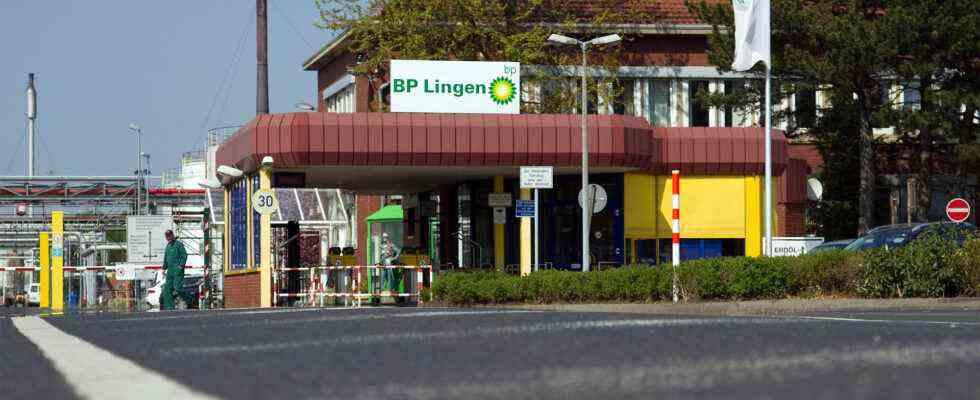Status: 02/21/2022 09:32 a.m
Organic raw materials from canteens and gastronomy: The British group BP starts the production of its more sustainable aviation fuel in Emsland. Among other things, used fats are used.
The British mineral oil and energy company BP is now producing aircraft fuel in Emsland with a small proportion of cooking fat residues. The organic raw materials come from canteens or catering establishments, for example. A spokesman explained that it is about used and leftover fats and oils, for example from deep fryers, cooking residues and biomass waste. Today BP announces the start of production at the Lingen refinery.
Since mid-February, they have been producing sustainable aviation fuel, so-called Sustainable Aviation Fuel (SAF), from used cooking oil in a “co-processing” process. It is processed together with crude oil in the existing facilities. According to the group, it is the first refinery of this type in Germany that can be used to produce industrially usable quantities. BP supports “the aviation industry in decarbonizing itself,” says a statement.
“Significant CO2 reduction”
The fats and oils used are mostly of vegetable origin and sometimes also of animal origin. In a closed process, they are combined with the crude oil hydrocarbons for normal kerosene up to the permitted percentage of five percent. When burned later, the CO2 emissions of biokerosene are similar to those of purely fossil aviation fuel – because the fat components were already in the material cycle, the overall climate balance should be better.
Biomass-based aviation fuels play an important role in the decarbonization of aviation, said Arno Appel, board member of BP Europa SE and head of the refinery in Lingen. “Because compared to conventional kerosene, SAF causes a significant reduction in CO2 over the entire life cycle of the fuel.”
In contrast to the cultivation of energy crops such as rapeseed or soy for biofuel production, the problem of land competition with food is not acute here either, said a BP representative. “That’s not an issue because the used cooking fats and oils are already in circulation.” For example, certified suppliers of organic raw materials would have to prove that they do not contain palm oil.
Another project in Emsland
According to BP, airlines can also use the biofuel immediately without any technical modifications. There are already customers for the biokerosene. The energy company did not want to give details. In the long term, BP wants to achieve a global market share of 20 percent with its SAF. In Germany, for example, there is no legal certainty so far. For this reason, the products obtained in “co-processing” are not permitted in Germany to count towards the greenhouse gas quota obligation and are therefore exported to other countries.
It was only in October that the Federal Environment Minister at the time, Svenja Schulze, opened another facility about 50 kilometers away in western Lower Saxony to improve the ecological balance of the aviation industry. However, the project of the non-profit climate protection organization Atmosfair in Werlte deals with the production of synthetic kerosene, which should ultimately be completely climate-neutral. Carbon – from the CO2 in the air or waste – and hydrogen – from water split using green electricity – react to form “artificial” fuel.
The production quantities here are still relatively small. The first customer is Lufthansa, and Hamburg Airport is supplied. The big oil and gas companies want to make alternative fuels and the entry into a hydrogen economy a further pillar. They do this to reduce the CO2 emissions from the extraction and burning of fossil raw materials – at the same time, however, investors are increasingly demanding the development of sustainable business models.

